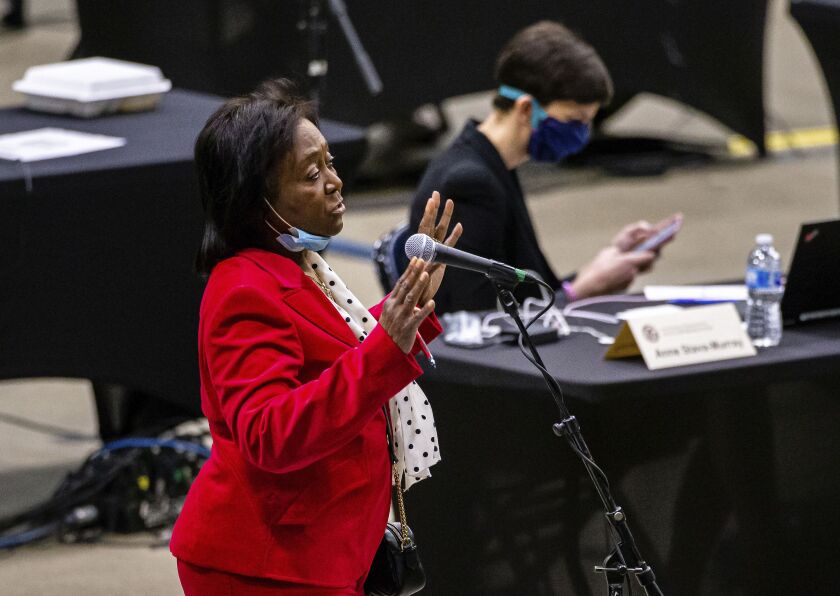A proposal that cleared a legislative committee in Springfield this week aims to fully legalize the delivery and possession of any amount of marijuana — a move that would also allow for the automatic expungement of more serious pot offenses and set free those who are currently incarcerated for those crimes.
State Rep. Mary Flowers, D-Chicago, said she introduced the bill to further address the toll of the drug war and its disproportionate impact on people of color.
Pot firms are currently cashing in on the newly legalized drug and selling millions of dollars in weed each month. But Flowers noted that some Illinoisans are still languishing in prison for cannabis-related crimes, while others are dogged by their past records.
“These are the people that showed the people that’s walking around with their suit and ties in their board rooms … that there was a market for this,” said Flowers, who did not support the push to legalize marijuana for recreational use. “They showed them how to disseminate it, how to cut it out, how to distribute it and how much money there was out there.”
The bill would make possession or delivery of pot legal, but not the manufacture or production of cannabis. Convictions for those crimes dating back to 1970 would be erased.
Flowers’ bill is now being sent to the House floor after being narrowly approved by the body’s Criminal Justice Committee.
Jim Kaitschuk, the executive director of the Illinois Sheriffs Association, spoke out strongly against the proposal during the meeting and reiterated his concerns in an interview. Kaitschuk warned that the bill “essentially legalizes any amount of cannabis” and noted that “huge potential drug traffickers” would have their pot-related records cleared.
“You could have a semitruck-load full of cannabis and now that’s legal,” he said.
What’s more, Kaitschuk said the proposal would allow certain pot offenders to carry guns and could complicate the state’s current expungement process. Under the legalization law, individuals arrested for possessing or selling up to 30 grams of cannabis — the amount that’s now legal — can have their records expunged. But the current process is being completed in batches, not in one automatic swoop.
“I don’t think most folks understand the cost, the reality [and] the time it takes to go back through records to do all of this, but it’s extensive,” he said.
Still, the fate of Flowers’ proposal is unclear.
A spokesman for House Speaker Emanuel Chris Welch declined to comment, while a spokeswoman for Senate President Don Harmon said his chamber is focused on proposals that originated there.
A spokeswoman for Gov. J.B. Pritzker said his office “is in the process of reviewing the bill” and “remains committed to working with the members of the General Assembly to undo the harms caused by the failed war on drugs which disproportionately impacted communities of color.”
“Since the Cannabis Regulation and Tax Act took effect, the administration has expunged 492,129 non-felony cannabis related arrest records at the state level, four years ahead of the deadline outlined in statute,” said spokeswoman Charity Greene. “In addition, Governor Pritzker has pardoned over 20,000 cannabis convictions and the state has issued nearly $32 million in grants to invest in these communities through our innovative Restore, Reinvest, Renew program.”
Contributing: Rachel Hinton






